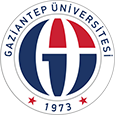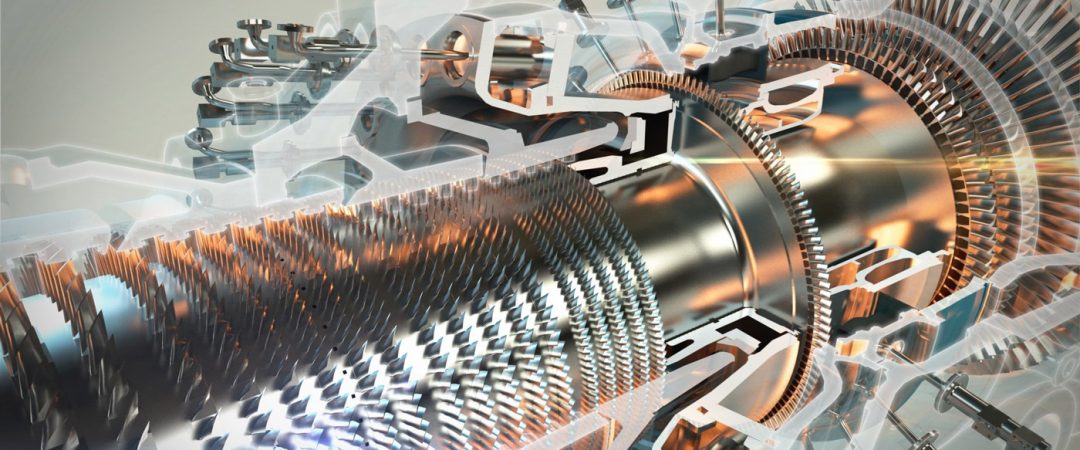Yüksek Lisans Programı websitesi: mse.gantep.edu.tr/index.php
Zorunlu Dersler:
MSE 599 MSc Thesis (0-1) Non-Credit ECTS: 6
This course aims to increase the level of the knowledge and the laboratory skills of students in their research. They conduct theoretical studies and laboratory experiments under the supervision of the assigned faculty member as an advisor.
MSE 899 MSc Special Studies (4-0) Non-Credit ECTS: 24
The M.Sc. Special Studies are aimed to enhance the research skills of students and interchange state-of-the-art information in technological and scientific fields.
MSE 700 MSc Seminar (0-2) Non-Credit ECTS: 12
MSc Seminar aims to improve the ability of students to prepare up-to-date research presented in a way suitable to scientific research methods to contribute to the process of education or preparing a presentation about subject students to master and presenting it in front of a group of people under the observation of the thesis advisor.
FBE501 Araştırma Yöntemleri ve Bilimsel Etik (3-0)3 ECTS:6
Bilgi okur-yazarlığı, bilimsel yöntemler, araştırma metot ve teknikleri, bilimsel araştırma, bilimsel projelerin hazırlanması ve sunumu, etik ve tarihçesi, etik ile ilgili kavramlar ve terimler, bilimsel etiğe giriş, bilimsel araştırma ve yayınlarda etik, mesleki etik (Mühendislik ve Doğa bilimlerinde etik), bilim dünyasında etik ihlalleri ve sonuçları, Yüksek Öğretimde etik kuralları ve uygulamaları.
Seçmeli Dersler:
MSE501 Mechanical Properties of Materials (3-0)3 ECTS:6
Elastic stress, elastic expansion, plastic behavior, dislocation theory, strength mechanisms, torsion, hardness, creep, impact, tensile testing, fracture
MSE502 Composite Materials (3-0)3 ECTS:6
Elements of composite materials; metal-matrix composites, laminated composites, natural composites, mechanical properties of composites, strength of composites, analysis methods of composites, and applications of composite materials applied to various fields. Hybrid Composite materials, Composite Production, Reinforcement element, Machinability, Mechanical analysis.
MSE503 Advanced Powder Metallurgy Applications (3-0)3 ECTS:6
Advanced applications in powder metallurgy and particulate material technologies and application areas of powder material technology.
MSE504 Advanced Welding Methods and Metallurgy (3-0)3 ECTS:6
Diffusion welding, ultrasonic welding, friction welding, modern soldering techniques, powder spray joining techniques, bonding, laser welding, electron beam welding.
MSE505 Fundamentals of Materials Science ve Engineering (3-0)3 ECTS:6
Introduction to materials science and engineering, structure-property-process relationship, atomic structure and bonds, crystal and crystal defects, diffusion mechanisms in solids.
MSE506 Advanced Heat Treatment Technologies (3-0)3 ECTS:6
Definition of heat treatment, reasons for construction, and the issues that need to be answered in heat treatment applications. Surface hardening processes without changing the composition of the surface. Surface hardening processes by changing the surface composition. Surface hardening processes by changing the surface composition. Isotherm T.T.T and continuous C.T.T. diagrams. Annealing types using temperature time conversion diagrams. Types of annealing. Heat treatments applied to non-ferrous metals. Heat treatment of alloyed steels. Heat treatment applications in casting materials
MSE507 Failure Analysis (3-0)3 ECTS:6
Engineering aspects of failure analysis, general applications in failure analysis, failure analysis and fracture mechanics, ductile-brittle fracture transitions, classification of fractures, and determination of fracture types. Corrosion fatigue damages, stress corrosion cracking. Creep, stress crack, wear failures. Fatigue fracture properties, specific properties of basic crack types related to loading conditions.
MSE508 Aerospace Materials (3-0)3 ECTS:6
Introduction to aerospace applications. Introduction of aviation materials. Materials requirements in aerospace applications. Strengthening methods of metallic materials. Mechanical and durability testing of aerospace materials. Production of aerospace materials. Production and casting methods of aerospace materials. Aerospace materials processing methods. Classification of aerospace materials. Aluminum alloys for aerospace applications. Titanium alloys for aerospace applications. Magnesium alloys for aerospace applications. Composites.
MSE509 Fundamentals of Surfaces and Interfaces (3-0)3 ECTS:6
Basic and applied aspects of surfaces. Solid /solid, solid /liquid and solid/vapor interfaces. Thermodynamics, reactivity, electronic properties. UHV single crystal studies, durability, and surface bioactivity of materials.
MSE510 Principles and Characterization of Polymer Science (3-0)3 ECTS:6
Polymerization, long-chain structure and macromolecular concept, structural properties of a polymer or macromolecule, length/diameter ratio, polymer classifications, structure-property relationship, viscoelastic properties of polymers, application areas of polymers. Differential Scanning Calorimetry (DSC), DSC Calibration and Tg Calculation, DSC Tracked Reactions, Determination of Evaporation Heat by DSC, Thermogravimetric Analysis (TGA), Dynamic Mechanical Analysis (DMA), Combined Thermal Analysis Techniques, FTIR and MS combined TGA.
MSE511 Advanced Biomaterials (3-0)3 ECTS:6
Biomaterials for medical applications. Basic material types and properties, functional uses of materials in medical applications, and tissue response mechanisms. Integrated design issues of multicomponent material design in prosthetic devices for hard and soft tissues. Materials for orthopedic, cardiovascular, and drug delivery applications.
MSE512 X-Ray Crystallography and Structure (3-0)3 ECTS:6
Theory of x-ray production. Characteristics of x-rays. Absorption and diffraction of x-rays. X-ray diffraction methods. Filters. Analysis of crystal structures. Measurement of lattice parameters. Scattering of x-rays. Identification of crystal lattice parameters.
MSE513 Advanced Materials Thermodynamics (3-0)3 ECTS:6
Material systems with particular emphasis on alloys. Thermodynamic relationships. Experimental and computational methods for the determination of the thermodynamic properties of alloys. Applications in alloying, heterogeneous reactions, and the thermodynamics of surfaces.
MSE514 Thin Film Deposition and Characterisation (3-0)3 ECTS:6
Deposition: Physical Vapor Deposition (PVD), Chemical Vapor Deposition (CVD), Spin coating, Platingç. Characterization: deposition rate, film uniformity, deposited materials, physical and chemical properties, deposition directionality.
MSE515 Smart Materials (3-0)3 ECTS:6
Introduction to smart material systems, Applications of hybrid composites, Shape memory alloys, Actuators, Piezoelectric materials, electroactive material systems, Smart coatings, Molecular imprinting technology, Chromogenic systems.
MSE516 Industrial Electrochemistry (3-0)3 ECTS:6
Electrochemical engineering, the Chlor-alkali industry, the extraction, refining, and production of metal, inorganic electrolytic processes, organic electrosynthesis, water purification, metal finishing, metal and materials processing, corrosion and its control, batteries, and fuel cells, and electrochemical sensors.
MSE517 Solid-State Theory (3-0)3 ECTS:6
Crystal symmetry. Electron states. Dynamics of electrons. Transport and optical properties. Diamagnetism and paramagnetism. Ferro-magnetism and antiferromagnetism. Magnetic domains. Electric properties of insulators. Superconductivity.
MSE518 Metal Nanoparticles and Nanoalloys (3-0)3 ECTS:6
Introduction to nanoparticles, nanoparticles—preparation, characterization, and physical properties, theoretical modeling of oxide-supported metal nanoclusters and nanoalloys, scanning transmission electron microscopy studies of mono- and bimetallic nanoclusters.
MSE519 Theory of Elasticity (3-0)3 ECTS:6
Analysis of stress and strain. Constitutive equations. Plane problems of elasticity. Torsion and flexure of beams. Variational methods. Theorems of minimum potential energy and complementary energy. Approximate solution by means of variational methods. Introduction to plate theory.
MSE520 Finite Elements Analysis (3-0)3 ECTS:6
Finite element concept. Variational methods and element formulation techniques. Representation of element behavior function and geometry. Transformation, assembly, and solution procedures. Some applications of finite elements.
MSE521 Advanced Characterization Techniques (3-0)3 ECTS:6
Electromagnetic spectrum. Introduction to structural analysis. Scanning electron microscopy (FESEM), scanning probe microscopy (SPM), and optical microscopy (confocal and NSOM) features and operating principles. Transmission electron microscopy (TEM), EBSD, X-ray diffraction (XRD and SAXS). S composition techniques include X-ray photoelectron spectroscopy (XPS), energy-dispersive X-ray spectroscopy (EDS), secondary ion mass spectroscopy (SIMS), and Auger electron spectroscopy (AES). Detailed application areas of advanced characterization techniques.
MSE522 Glass Science and Technology (3-0)3 ECTS:6
Definition of Glass Structure, Composition, and Classification of Glasses, Melting Crystallization, Kinetic Theory of Glass Formation, Physical Properties, Chemical Properties, Thermal Properties, Structural Properties of Glass, Electrical Properties and Mechanical Properties, Industrial and Various Glass Formulations Technological Applications.
MSE523 Nanoscience and Nanotechnology (3-0)3 ECTS:6
History of nanotechnology. Basic concepts in nano-world. Nanotechnological production devices: top-down and bottom-up production approaches. Application of nanomaterials, characterization techniques of nanomaterials.
MSE524 Production of Ceramics with Sol-Gel (3-0)3 ECTS:6
Introduction to the sol-gel method. Sol-gel starting material structures, important experimental parameters in the sol-gel production process. Sol-gel applications. Sol-gel transformation and heat treatment. Characterization of sol-gel treated ceramics.
MSE525 Biomaterials (3-0)3 ECTS:6
Definition and classification of biomaterials. Definitions of biocompatibility and toxicology, properties, performance, and usage areas. In addition, biomolecule characterization and biological analysis techniques.
MSE526 Nuclear Materials (3-0)3 ECTS:6
The basic physical phenomena affecting the performance of materials typically used in nuclear environments and their structures, production, and the conditions to which they are exposed, microstructural property relations.
MSE527 Polymeric Composites (3-0)3 ECTS:6
Definition and classification of composite and polymer composite materials; historical development and application areas; polymer matrices used in composites, fiber technology; fiber-matrix interface properties; coating agents; fiber-matrix interface strength measurement; micromechanical tests with single fibers; polymeric fibers and fiber drawing methods; production methods of polymer-fiber composite materials; polymer-based nanocomposites; mechanical in polymer composites; physical, electrical and thermal properties; design and experimental studies.
MSE528 Kinetics of Metallurgical Processes (3-0)3 ECTS:6
Basic concepts of kinetics, reaction rates, effect of temperature, reaction types, techniques and methods, gas-phase reactions, reactions in solutions, solid-state reactions, non-isothermal methods in kinetics, diffusion phenomena and kinetics, surface coatings and kinetics, thermodynamics and kinetics of alloys, phase transformations kinetics, sintering, and grain growth kinetics
MSE529 Thermal Analysis Applications (3-0)3 ECTS:6
Thermogravimetric analysis (TG) and its applications, derivatographic thermogravimetric analysis (DTG) and its applications, differential thermal analysis (DTA) and its applications, differential differential thermal analysis (DDTA) and its applications, differential scanning calorimetry (DSC) and its applications, thermomechanical analysis (TMA-) Dilatometry) and its applications, thermal conductivity and applications, and the gas analysis (EGA) methods and applications.
MSE530 Surface Engineering (3-0)3 ECTS:6
Introduction to surfaces and interfaces, structure and properties of interfaces. Different coating methods Surface treatment techniques involving chemical and physical changes; Special surface treatment techniques. Selection of surface treatment and control of surface quality.
MSE531 Energy Storage and Conversion Materials (3-0)3 ECTS:6
Fundamentals of electrochemistry, electrochemical thermodynamics, and convection. Energy storage and transformation: an overview. Energy storage and conversion devices such as primary and secondary batteries, fuel cells, and solar cells. Working principles, design concepts, and material issues. Electrochemical characterization for batteries, supercapacitors, and fuel cells.
MSE532 Hydrogen and Fuel Cells (3-0)3 ECTS:6
To give an idea of the critical role played by material sciences (and material engineering) in the development of various hydrogen and fuel cell technologies. The courses are taught in the following areas: (1) Hydrogen production methods; (2) hydrogen separation; (3) molecular hydrogen storage; (4) solid-state hydrogen storage; and (5) fuel cells.
MSE533 Entrepreneurship (3-0)3 ECTS:6
Innovations, definitions of entrepreneurship, characteristics of entrepreneurs, working environment in large companies engaged in innovation, entrepreneurship mentality, the situation and conditions of the sector, sustainable competition understanding, the impact of technological developments on entrepreneurship, the importance of branding, market analysis, business plan.
MSE534 Nanofiber Production and Characterization (3-0)3 ECTS:6
Terms and definitions of nanotechnology, nanofibre production techniques, electro spin production technique, materials used in nanofibre production, production of nanofibers with different morphologies, quality parameters tests of nanofibers, application areas of nanofibers.

